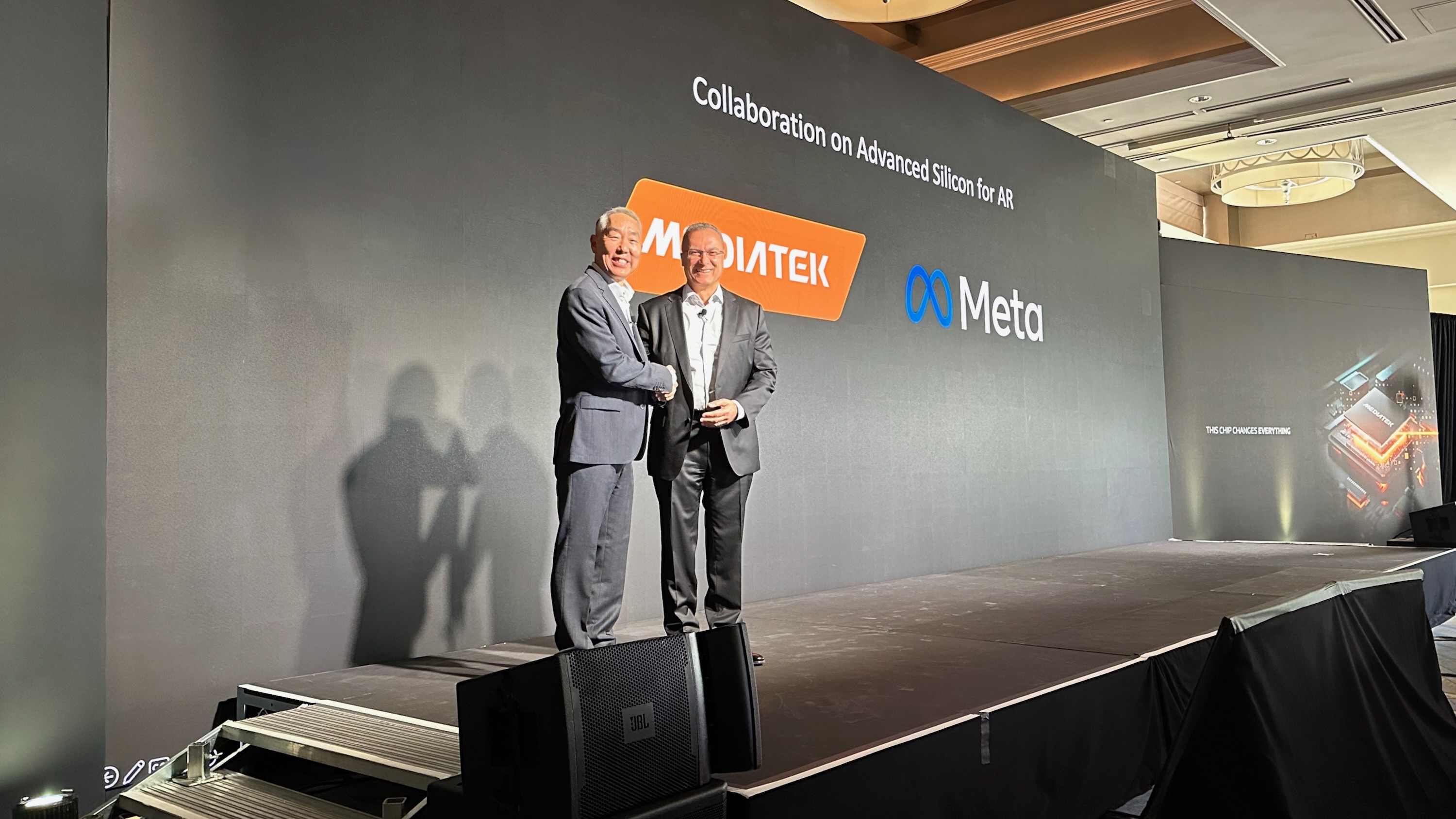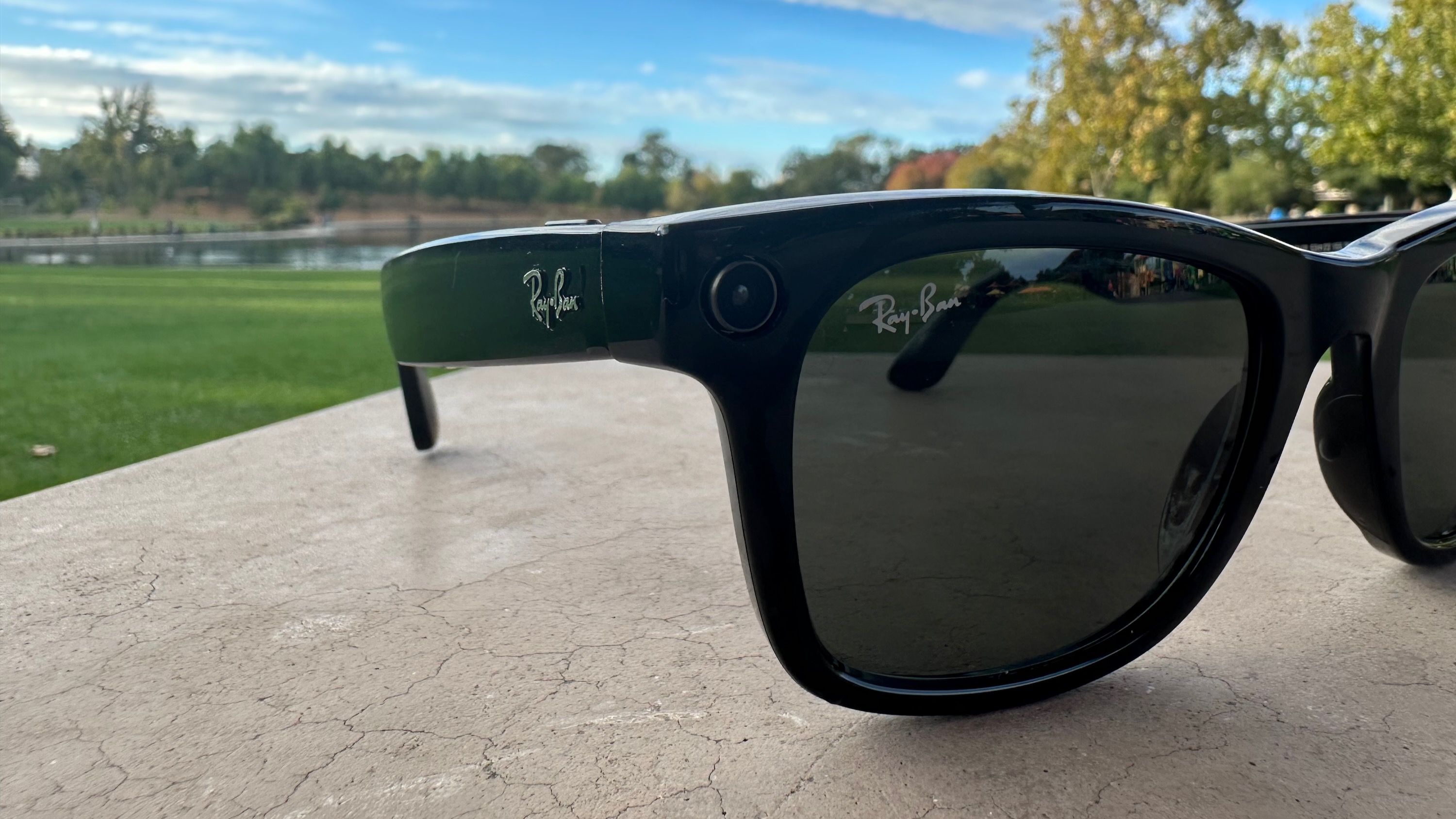
What you need to know
- MediaTek announced a partnership with Meta to develop custom silicon for future AR glasses at its 2023 summit.
- Meta says it needs silicon that's "high-power compute, but also low power and low latency."
- Meta has traditionally used Qualcomm silicon for its virtual and mixed reality.
- Meta has a custom silicon unit, but recently laid off many of its employees.
After years of rumors about Meta and Reality Labs' struggles to create augmented reality glasses, Meta is turning to MediaTek to create exclusive, custom silicon to power its future AR glasses.
At the MediaTek Summit 2023 in Laguna Beach, California, MediaTek VP Vincent Hu and Meta Reality Labs VP Jean Boufarhat announced the partnership. Hu emphasized that it is an exclusive partnership, meaning whatever silicon it develops for Meta won't be offered to other smart glasses brands.
Boufarhat, speaking on stage, emphasized that "new silicone needs to be developed" to make AR glasses a reality. He noted that they need high performance, low power consumption, low latency, and a compact design to fit inside the glasses form factor, and called MediaTek a "key partner" in making that happen.
Considering how closely Meta has worked with Qualcomm in the past to develop silicon for its VR headsets — the Meta Quest 3 uses a Snapdragon XR2 Gen 2 chip, for example — this announcement proved a surprise to industry experts. Qualcomm also has a Snapdragon XR1 lineup for AR glasses.
Meta chose another direction, likely coveting the chance to have MediaTek implement its own vision instead of following Qualcomm's.

Although Meta sells Ray-Ban Smart Glasses, these aren't actual AR glasses. To actually augment your vision with a compact glass display that doesn't require wires or a bulky design, Meta needs a new solution.
We heard back in July that Meta had pushed its first AR glasses launch to 2027 because its current prototype hadn't achieved a form factor that would work for a widespread consumer launch. We can assume that MediaTek's custom silicon won't appear in a product for a few years; in theory, though, a positive partnership will prevent any future delays
Meta originally hoped to make custom silicon for its own Quest headsets, built by its Facebook Agile Silicon Team (FAST) unit but eventually abandoned those plans. We recently heard that Meta laid off some FAST members around the Quest launch, but we assume the remaining team will work closely with MediaTek during this partnership.
MediaTek, meanwhile, is quietly making a name for itself in the "metaverse" space. Last year, MediaTek announced that its SoC would power the PSVR 2, in addition to the PS5. Now, this MediaTek-Meta partnership will further that XR growth.
MediaTek also announced the new Dimensity 9300 chip for flagship phones in the past week.







